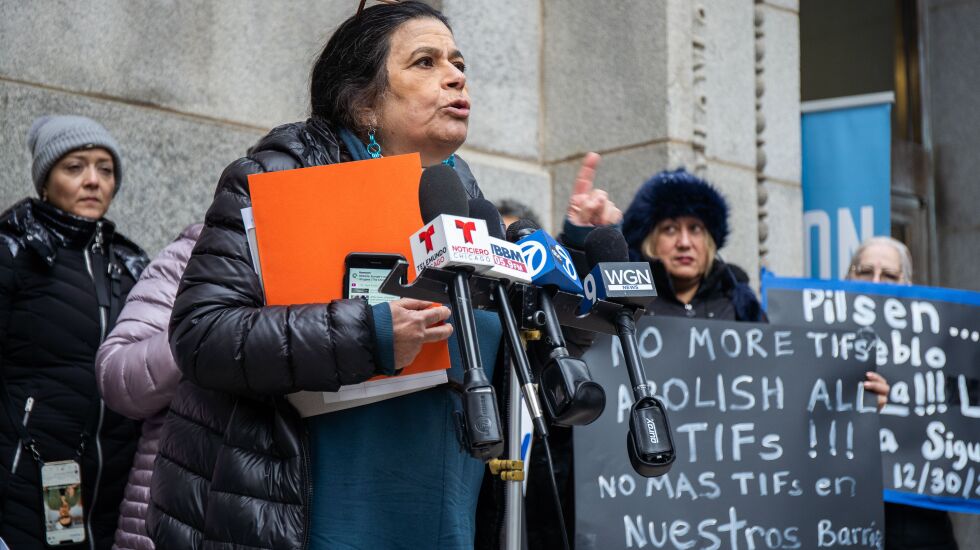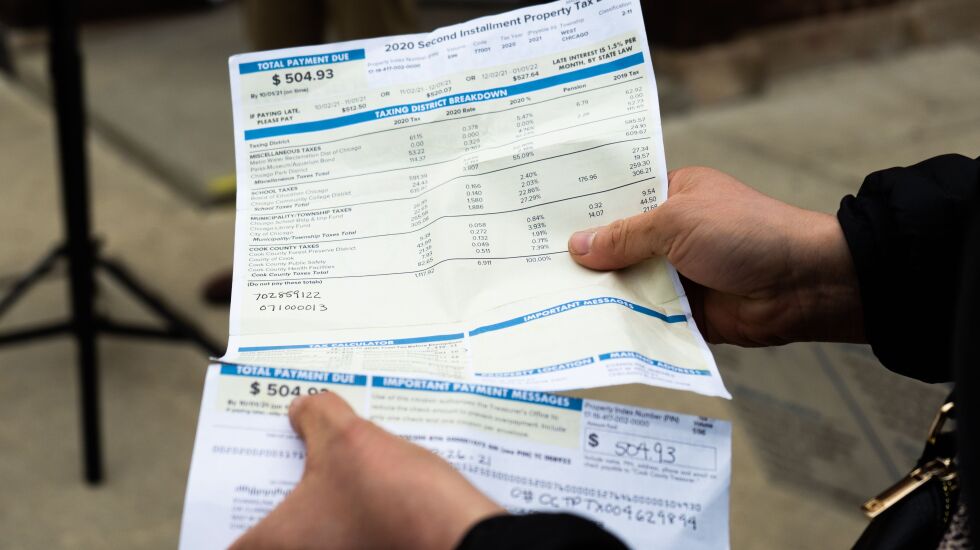
Jolie Jimenez, like many homeowners, saw the property taxes for her family’s place in Pilsen spike this year and she’s crying foul and joining a campaign to reform the assessment process.
“This is a great injustice,” said Jimenez, 48. “I almost passed out when I saw the bill.”
The property taxes for the three-flat had been low because her mother, who owned it and passed away recently, qualified for homeowner, senior citizen and senior freeze exemptions; but Jimenez didn’t realize the bill would jump from about $1,000 to $11,000 annually.
“I was not expecting it to be that high,” she said.
Jimenez plans to fight it, starting by attending a property tax exemption workshop this weekend and by joining property tax reform demonstrations around Cook County.
The upcoming workshop was announced Wednesday by Mi Villita Neighbors outside of a community center in Little Village, where leaders from the group also shared the plans for its upcoming campaign.
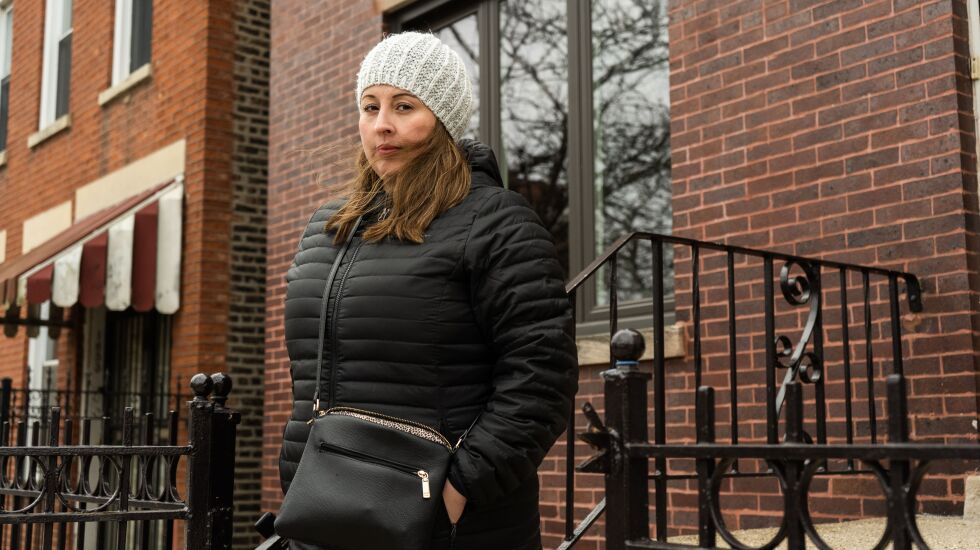
The community center, Universidad Popular, 2801 S. Hamlin Ave., is where the upcoming workshop will be held from 1 to 4 p.m. Saturday. It will be free and no registration is necessary. Help will also be available for Spanish speakers. Organizers are asking attendees to bring identification and proof of residency.
Dr. Howard Ehrman, a former assistant health commissioner and co-founder of the neighborhood group, is helping lead the workshop.
“We’re going to assist people to make sure they get the exemptions they qualify for. We have people on every block that they don’t know they qualify for exemptions and then we have others that don’t know they qualify for a certificate of error going back four years,” he said.
Ehrman estimated some people who attend the workshop could get potentially get back thousands of dollars in refunds.
Raul Contreras said he got back around $2,000 through an exemption for senior citizens.
Contreras, who teaches Chicano studies at Indiana University Northwest, plans to volunteer at the workshop, where he hopes to recruit attendees to fight the assessment process.
“This is to help people become part of a campaign to deal with this truly unjust property tax increase, that is hitting communities like ours — Latino communities,” he said.
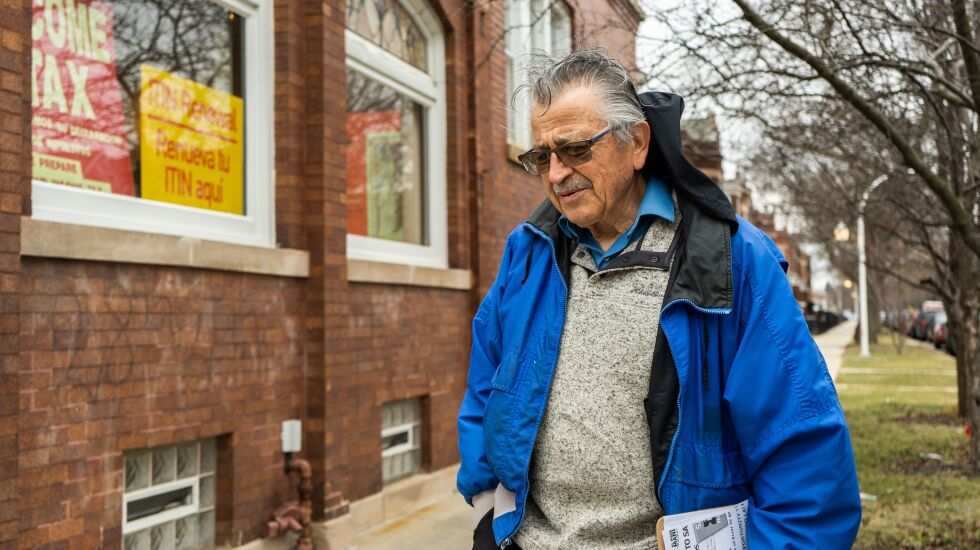
An analysis of tax bills released last year found property owners in gentrifying Latino neighborhoods in Chicago saw some of the biggest increases.
On the Lower West Side, property owners saw their median tax bill jump from $4,964 to $7,239, a 46% increase, according to the analysis.
Not long after it was released, residents began to protest, demonstrating in a car caravan that began in Pilsen and ended outside of the Cook County Building in the Loop.
Contreras said the demonstrations are just beginning.
“We intend to take it all the way to the state level to get these property tax increases changed,” he said.
On Thursday morning, The People Rule Coalition — the same group of Pilsen residents that organized the car caravan — plans to demonstrate outside the Cook County Treasurer’s office at 118 N. Clark St.
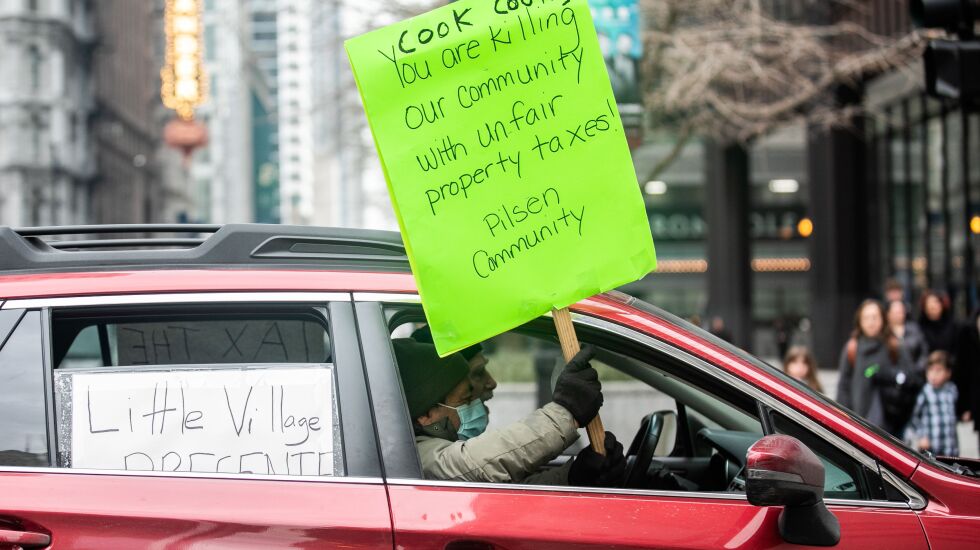
Laura Paz, a Pilsen property owner and member of the group, said they will demand a moratorium on the property taxes and any related interest until the process is changed.
“People will lose their houses,” Paz said.
She said the group understands Cook County Treasurer Maria Pappas has no control over the process, but they want her to ally with them. Pappas’ office did not respond to a request for comment.
The group also staged a protest outside the suburban home of Cook County Assessor Fritz Kaegi in early February.
Paz said the group was ramping up its actions as it fears that if something isn’t done, the property tax hike will lead to the demise of the historic port of entry for Mexican immigrants.
“For us, houses are not commodities. We come to our new country, our new world and we want to set down roots and that’s where we build our community,” Paz said.
Michael Loria is a staff reporter at the Chicago Sun-Times via Report for America, a not-for-profit journalism program that aims to bolster the paper’s coverage of communities on the South Side and West Side.
